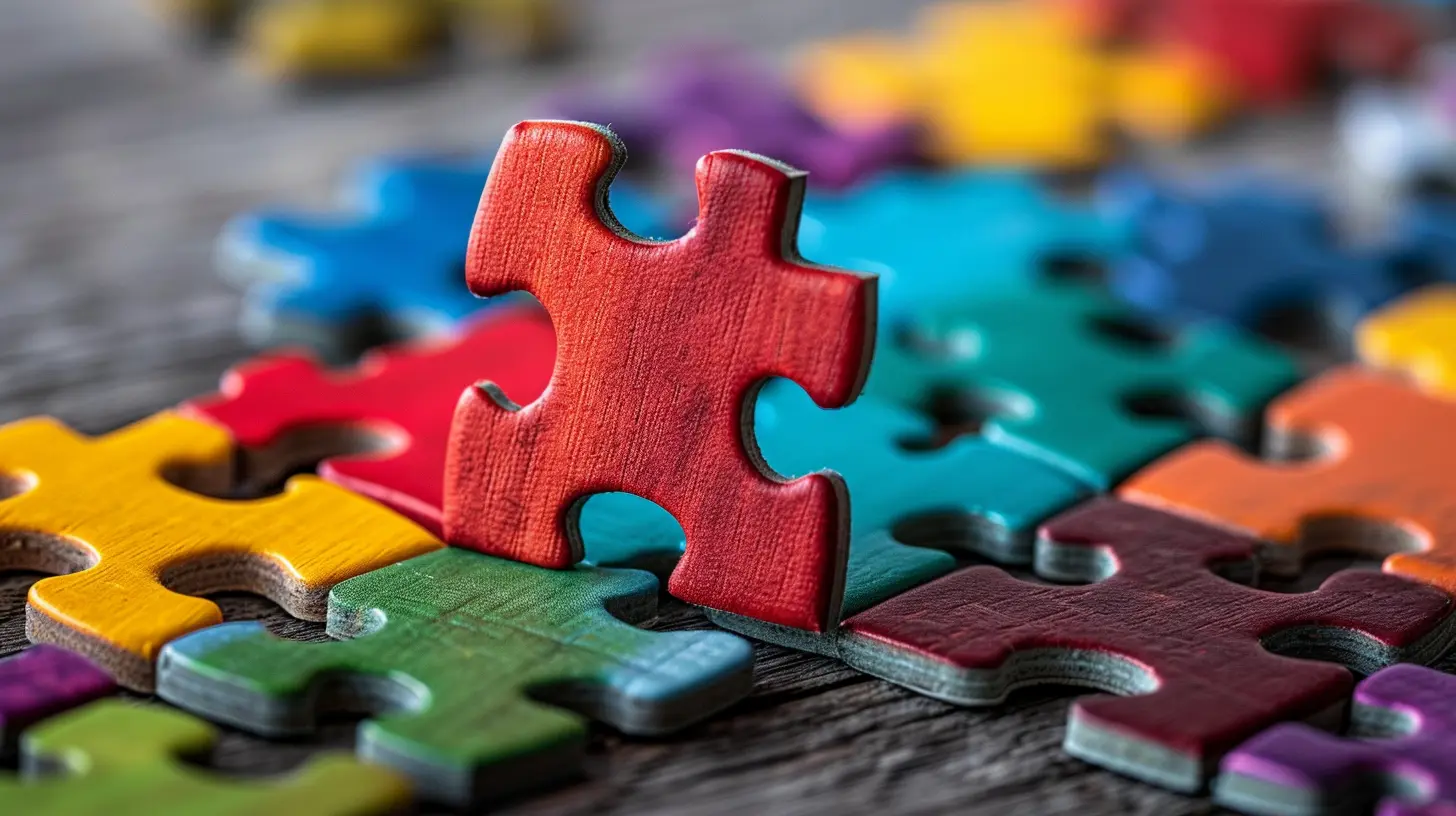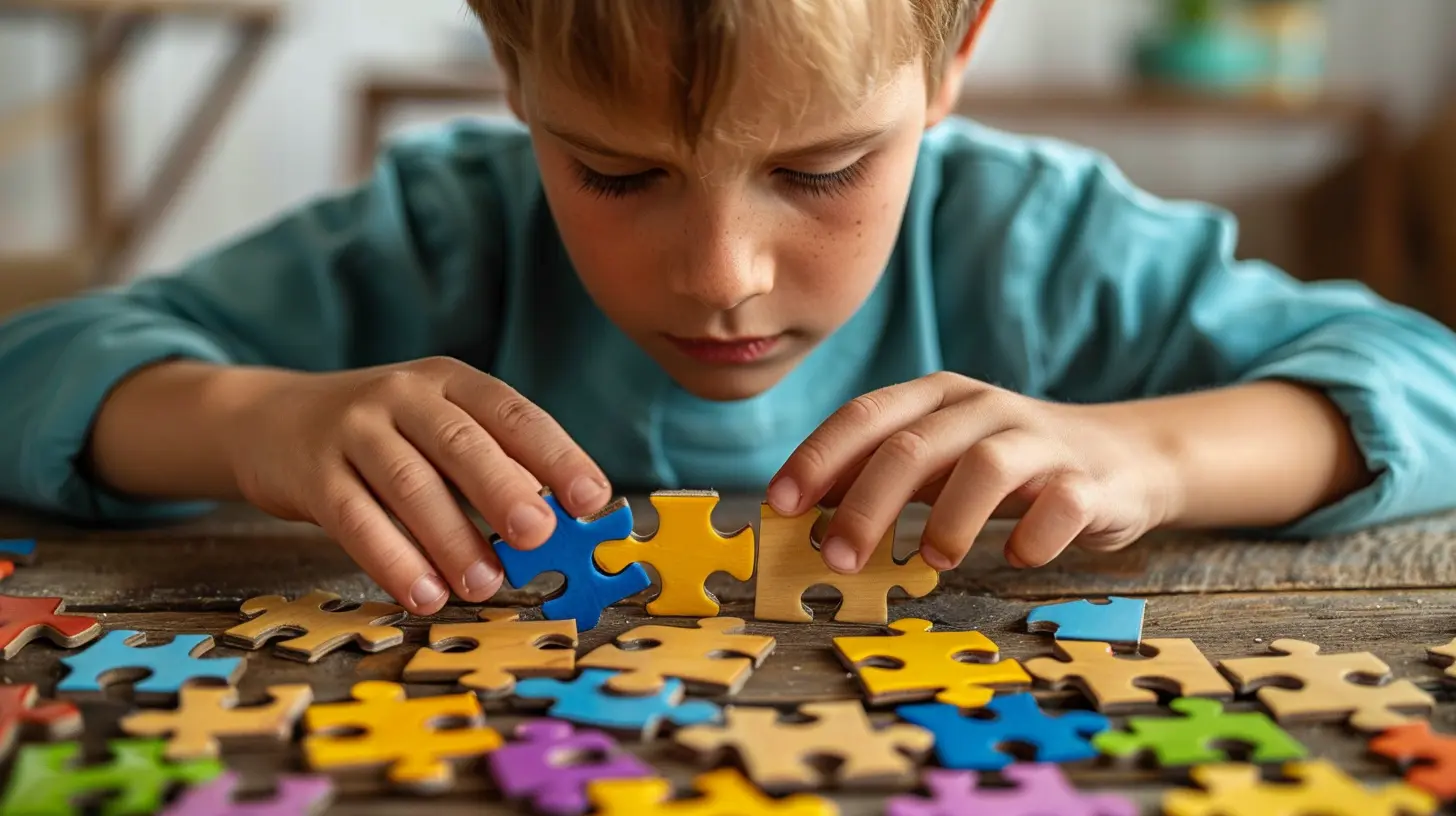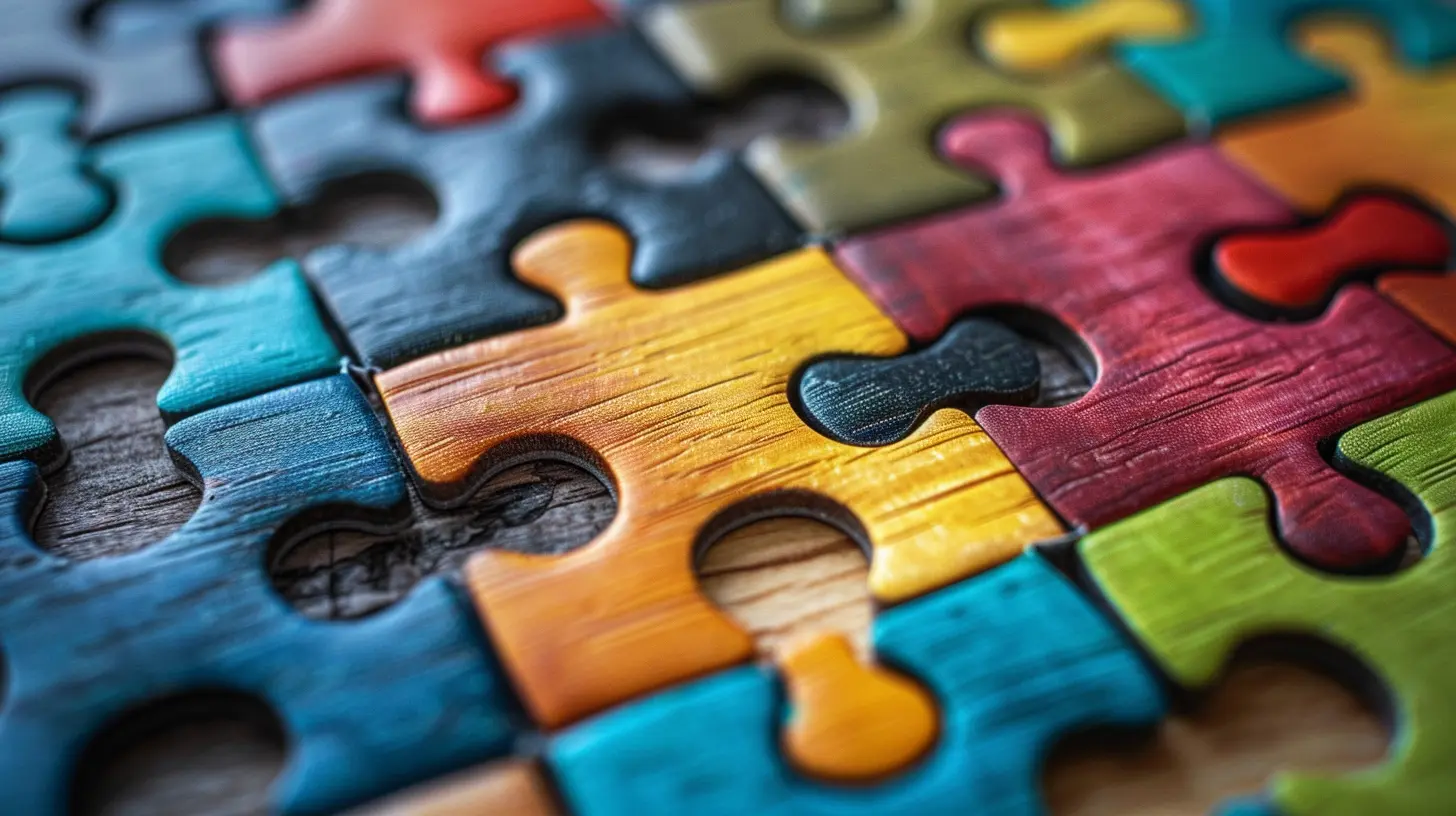Puzzle Games and Cognitive Development: What Science Says
30 August 2025
Have you ever spent hours trying to solve a tricky puzzle, only to feel a strange sense of triumph once you finally crack it? There’s something rewarding about playing puzzle games, but did you know they’re not just entertaining—they’re actually good for your brain? That’s right! Puzzle games do more than kill time or boost your mood—they can actually enhance your cognitive development.
But wait, what exactly does “cognitive development” even mean? And how do puzzle games fit into this picture? In this article, we’ll dive deep into the science behind how puzzle games affect your brain. Let’s uncover how these entertaining challenges can turn you into a mental powerhouse. 
What Is Cognitive Development?
Before we get into why puzzle games matter, let’s break down this whole “cognitive development” thing. Essentially, cognitive development refers to how we acquire and improve mental skills like problem-solving, memory, reasoning, and even creativity. It’s how our brains grow stronger and smarter as we age.Think of it like working out at the gym. Just as physical exercise strengthens your muscles, mental exercise strengthens your brain. And guess what? Puzzle games are like the ultimate brain gym.
Puzzle Games: More Than Just Fun
When someone says “puzzle,” you probably think of classic jigsaw puzzles or maybe a crossword. But the world of puzzle games is massive. From Sudoku to escape rooms, match-three games like Candy Crush, or even brain-teasing video games like Portal, they all fall under the puzzle category.These games force you to think critically, analyze patterns, and come up with creative solutions. It’s no wonder researchers have been diving into their effects on our cognitive abilities. 
How Puzzle Games Boost Cognitive Skills
1. Improved Problem-Solving Abilities
Ever notice how you approach a tricky situation differently after playing puzzle games? Well, that’s no coincidence. Puzzle games push you to solve problems by breaking them into smaller, manageable pieces.Take Sudoku as an example. You need to figure out where each number fits without repeating it in a row, column, or box. This encourages logical thinking and strategic planning, which are skills you can apply to real-life situations. Whether it’s figuring out how to fix your broken sink or navigating a tough work project, problem-solving becomes second nature.
2. Sharper Memory
Have you ever played a word search or matched tiles in a game like Mahjong? Activities like these challenge your short-term memory as you recall patterns and find matches.On a deeper level, puzzle games engage the hippocampus, the part of the brain responsible for forming new memories. Research suggests that regular engagement with memory-centric puzzles may even help stave off memory-related conditions like Alzheimer’s and dementia.
3. Enhanced Spatial Awareness
If you’ve ever played Tetris or completed a jigsaw puzzle, you’ve worked on your spatial reasoning. Spatial awareness is the ability to understand how objects relate to each other in space—a skill that’s crucial for everything from packing your suitcase to parallel parking.Studies have shown that engaging in puzzles that require spatial reasoning can literally rewire your brain to become better at visualizing and manipulating objects in 3D space.
4. Boosted Attention to Detail
Puzzle games often require laser focus and precision. Miss one tiny detail, and you could end up stuck or losing the game entirely.For example, in a crossword puzzle, a single wrong letter can throw off the entire grid. This forces you to slow down, analyze every detail, and double-check your work—skills that can carry over into the real world. Imagine being the person who catches the tiny mistake in a company report or notices the incorrect change at the grocery store.
5. Stronger Logical Thinking
Puzzles like riddles or logic grids are basically boot camp for your reasoning skills. These games require you to follow a sequence of steps or rules to find a solution. It’s like being a detective piecing together clues to solve a mystery.The more you engage in these logical challenges, the better you become at structured thinking—a skill that’s invaluable in jobs like engineering, programming, or even teaching. 
The Science-Backed Benefits of Puzzle Games
Let’s get nerdy for a second. There’s actual science behind these claims. Studies show that engaging in mentally stimulating activities, including puzzles, can lead to measurable cognitive improvements.For instance, neuroscientists have found that solving puzzles creates new connections between brain cells, known as synapses. Essentially, you’re building a stronger and more efficient brain every time you play.
One study published in the journal Frontiers in Aging Neuroscience found that elderly participants who played puzzle games regularly showed higher brain function compared to those who didn’t. Talk about aging gracefully, right?
Another study conducted by the University of Michigan revealed that activities like playing puzzles for just 25 minutes a day could boost IQ scores by as much as 4 points. That’s not bad for something you can do while sitting on your couch!
Are Puzzle Games for Everyone?
Absolutely! The beauty of puzzle games is they’re diverse and accessible. Whether you’re a kid learning new skills, an adult trying to stay sharp, or a senior looking to boost mental agility, there’s a puzzle game for you.Don’t love math-based puzzles? No problem! You might enjoy word puzzles or visual puzzles instead. The key is to find what excites you because when you’re having fun, you’re more likely to stick with it.
Balancing Puzzle Games with Real Life
Okay, let’s be honest. While puzzle games are amazing, moderation is key. Spending hours glued to your phone solving virtual puzzles? Not the best move. Instead, treat puzzle games like brain snacks—fun and beneficial, but not something to overdo.Plus, solving puzzles in different forms—like board games with friends or physical puzzles—can add a social element that also boosts emotional well-being.
Tips for Getting Started
Ready to dive into the world of puzzle games? Here are a few tips to get you started:- Start Small: If you’re new to puzzles, don’t overwhelm yourself with something insanely difficult. Start with simpler games like word searches or easy Sudoku puzzles.
- Explore New Types: Mix it up! Try different kinds of puzzles to engage multiple areas of your brain.
- Challenge Yourself: As you improve, level up your games. Go for harder puzzles to keep the momentum going.
- Make It Social: Invite friends or family to join in. Working on puzzles together not only sparks conversation but also adds a fun layer of teamwork.
Final Thoughts
Puzzle games aren’t just a way to pass the time; they’re a legit brain booster that can make you sharper, smarter, and more resilient. From solving childhood jigsaw puzzles to conquering complex escape rooms, these challenges offer a mental workout like no other. So, the next time you lose yourself in a puzzle game, just remember: your brain is reaping the rewards!all images in this post were generated using AI tools
Category:
Puzzle GamesAuthor:

Stephanie Abbott
Discussion
rate this article
1 comments
Elizabeth McNab
Puzzle games shape minds; play transforms cognition profoundly.
September 9, 2025 at 4:36 AM

Stephanie Abbott
Thank you for your insightful comment! Indeed, puzzle games have been shown to enhance cognitive skills and transform how we think.

